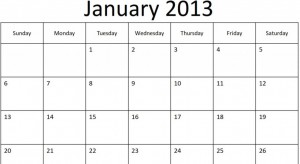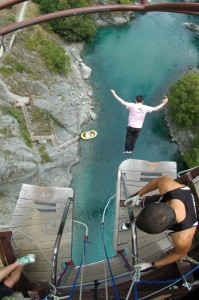curriculum EFL eikaiwa ES expectations extensive reading kids language courses Language learning materials oxford owl Oxford Reading Tree presentations teaching
by sendaiben
leave a comment
Oxfort Teaching Workshop Series Fukuoka Feb 3 2013
I’ll be presenting in Fukuoka again this Sunday, at the Oxford Teaching Workshop Series 2013.
I’m really excited about the topic: designing reading programs for young learners.
I’ll be on at 10:30 in the Tenjin Crystal Building. Please see the flyer for more details.
Annual Review 2012/Plan for 2013
Welcome to the first post of 2013 on this blog. This year is the year of the snake, and I will be 36 at some point, so apparently it’s my time to shine. Looking forward to learning and experiencing a lot this year.
This week for the first time I have finally got around to doing an annual review of last year and a plan for this one. I found the experience very interesting and useful.
I’m not going to go into the details of what I ended up writing, but I thought I would share the process in case someone else might find it useful.
I started off with three broad categories (work, personal, and relationships), then wrote a brief description for each based on what happened in 2012. Each category was broken down into multiple sub-categories. The descriptions were short and contained my impressions. It probably took me a couple of hours to write everything out as this was the first time I have done this.
The next part was even more time-consuming, but also a lot of fun: planning out 2013. I took the same categories and sub-categories and wrote out what I wanted to get done this year. For this document, I was as specific as possible with regards to numbers, dates, etc.
Finally I made a simple spreadsheet with monthly goals to be ticked off. I’m going to tape this to my computer monitor to make sure I don’t forget about the plan.
Next December when I come to do my 2013 review, I’ll be able to measure my results against the specific goals I set.
If you have a free day or so, I really recommend this exercise. I found it extremely useful as it forced me to think about what exactly I want to accomplish in the short-, medium-, and long-term.
What does it feel like to do a bungee jump?
I have a slightly different post for you today, one I have been meaning to write for months now. In February this year (2012), I flew to New Zealand to meet up with my friend Paul for a week in Queenstown on the South Island.
One thing we decided to do was a bungee jump. It’s something I had always wanted to do, and it seemed like the perfect place to do it -after all, commercial bungee jumping started in Queenstown.
I started doing some research on the internet about what it was like, but didn’t find anything detailed about the process, or the feelings, so I decided to write something and try to fill that gap.
So this post will try to answer the question of what doing a bungee jump for the first time feels like.
A lot of my experience was shaped by the extremely professional operation that A.J. Hackett runs in Queenstown as their whole operations is designed to manipulate you into successfully completing your jump.
1. Signing up and pre-paying
We signed up for our jump and paid in advance at a city centre location. This is important, because the photos do nothing to prepare you for how high up the actual jump feels when you’re standing on something looking down into space. Once you’ve paid your non-refundable fee, you have a significant stake in actually doing your jump.
2. Arriving at the centre
Our first reaction was ‘that is so high up, there is no way I am going to be able to jump off that bridge’. The check-in process is very quick though: go to the desk, sign in, get weighed, go to the toilet for one last time, then walk out onto the bridge. Luckily we didn’t have to wait at all.
3. Preparing for the jump
My number was first, so I was asked to sit down and they immediately started harnessing me up. First I put on a harness, then the bridge guys (jump masters?) wrapped a towel around and between my ankles, then they attached the rope. They also asked how wet I wanted to get (one of the benefits of jumping above a river is that you have some flexibility with regards to hitting the surface).
4. Out on the ledge
Then very quickly I was walked out onto the ledge. It’s just like walking the plank in old pirate films, a short platform over the void. The guy with me was very matter of fact, and I can only describe my feelings as controlled terror. I was terrified, but functional. It took me a really long time to let go of the bridge (as you can see in the video below).
5. The mind game
Now this is where they get very clever with the mind-control techniques. First of all, the bungee centre is a tourist attraction: coaches arrive regularly and large numbers of tour groups watch the bungee jumps. As I was doing mine there were probably about thirty people watching from the side. What the staff do is make you look over and see just what kind of an audience you have (where he tells me to wave at the other camera, that is where the people are standing). Now on top of the financial commitment you also have a serious pride commitment -there is no way you are going to back out in public. The final thing is that it is all very quick: you look at one camera, wave at another, then have a five, four, three, two, one countdown and jump.
6. Stepping off
This was slightly surreal. I wasn’t sure that I would be able to do it until I actually did it. At first, it felt like time stopped (like those cartoons where the characters hang in the air before looking down and dropping). Then it was just falling through the air. The thing that surprised me is that there is no jerk at all, the whole motion is very smooth as the bands take up the slack and stretch. Once you are bouncing around it is exhilarating.
7. Back to earth
I was collected by two guys in an inflatable boat, as you can see in the video. After my jump, I ran up the steps at the side of the river to see my mate Paul jump after me. We then spent another 30 minutes or so there drinking coffee and enthusing about how amazing the whole experience had been.
Doing a bungee jump was a great experience and I am very glad I did it. It is a completely artificial experience, but at the same time one of the few in modern life where you have the chance to do something that feels incredibly dangerous -to face mortal fear and push through it- while at the same time remaining almost completely safe.
The stunning location was a huge bonus, and doing it with a close friend just cemented the experience.
If you have the chance, I would recommend doing a bungee jump at least once. I may do it again, but I don’t think it would have the same primal effect on me: having done it once, I now know it is safe.
curriculum EFL evaluation expectations extensive reading Japanese Language learning presentations readers Reading teaching university
by sendaiben
leave a comment
ER@TU (Extensive Reading at Tohoku University)
I gave this short (30m) presentation about our ER program here at Tohoku University. The presentation is in Japanese.
conference curriculum EFL eikaiwa elllo ES ETJ expectations extensive listening extensive reading high school Japanese junior high school Language learning online resources oxford owl Oxford Reading Tree phonics popjisyo presentations renshuu reviews rikai self-study teaching technology TED university video
by sendaiben
leave a comment
Annotated list of websites from the “SRS, RSS, LMS: Online Tools to Boost Learner Efficiency” presentations
Hi everyone
A friend from Sendai reminded me that I promised to post the list of websites from my presentation on the blog. Here it is:
Anki is a spaced-repetition program
elllo.org is an amazing listening resource: over 1200 short conversations with transcripts
EnglishCentral.com has short videos with interactive subtitles as well as vocab and pronunciation practice
Facebook needs no introduction
Google search settings have some interesting tools, like reading level
Google translate is partially useful
iTunesUniversity great content for advanced students and teachers can now use it to show their classes
Network (Oxford University Press textbook) new series based around social media
OxfordOwl incredible resources including Oxford Reading Tree ebooks with sound
pikifriends a closed social network for junior high schools
popjisyo.com amazing resource for reading online content
readthekanji.com a simple (paid) system for learning kanji
renshuu.org a very powerful site for learning kanji and vocabulary -freemium but most of it is free
rikaikun for Chrome/rikaichan browser extension Firefox gives popup translations within the browser
skype for video calls
starfall.com phonics and reading practice for children
TED.com great content for teachers and advanced learners
youtube.com you know this
Hope you find something useful in there.



